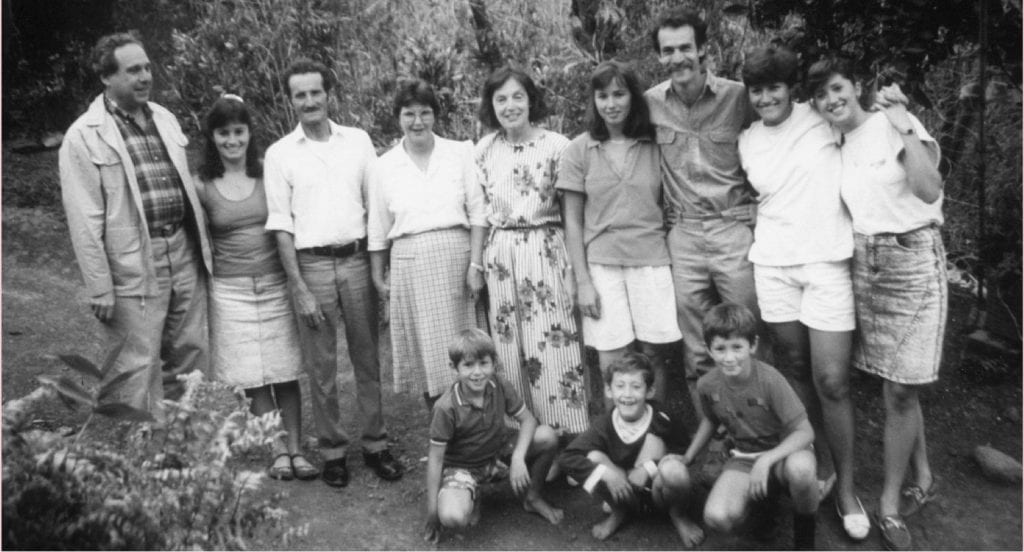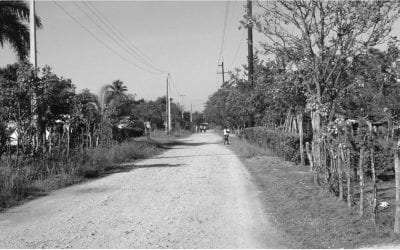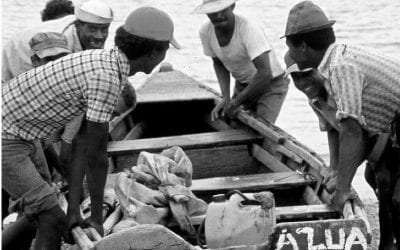The True Impact of the Peace Corps
Returning from the Dominican Republic ’03-’05
I served in the Peace Corps in Costa Rica from 1988-1990 as a soil conservation volunteer, one of only four serving there at the time out of over 200 volunteers. I was asked to do this work based on my Master’s degree in Soil Physics from the University of Massachusetts, which I had earned a few months before. My assignment was to a neighborhood that was fairly well-developed economically. I lived in Matinilla, a rural neighborhood dominated by the cultivation of coffee and onions. The goal of my project was to improve groundwater recharge in the basin of Rio Uruca through soil conservation practices such as drainways and terraces. This turned out to be a surprisingly easy sell, as the farmers in my neighborhood worked very steep hillsides which required terracing to be viable. They were happy to have me shovel along with them, and I really enjoyed their company. Wherever I went, I was treated like a family member. One day, a Costa Rican friend of mine asked me, “David, donde está tu pueblo?” (“David, where is your hometown?”) and I told him that I was standing in it. A person can really feel part of a community where everyone truly depends on everyone else for safety, financial security, and fun.
I don’t know that I ever specifically thought of myself as carrying out the visions of the 60s, although well into the 80s my younger brother called me a “hippy throwback.” I was a young child in the 60s, and certainly I had the chance that everyone had to have my head filled with notions of peace, freedom and justice for all. I saw my Peace Corps service as a way to pursue what I had learned in post-Harvard agriculture school in a really exciting context, and that did happen. I also learned much more from Costa Ricans about life than I could possibly have offered them about any particular U.S. ideals. I have to say that I think our nation is suffering from a tidal wave of cynicism, but the latest crop of teenagers seems to hold the promise of something different.
I say that because I do continue to pursue certain ideals in my life and work. I’m the single parent of two teens, one a visionary idealist, the other an awesome guitar player, so the 60s do live on in my home, perhaps. I also work in the Village School, the alternative public high school in Great Neck, New York, where every day I spend time with teenagers who are looking for a different way to understand and deal with the world. They’re not saints, but they do have a great empathy for children in other schools and other countries. They want their lives to be meaningful in terms of global citizenship, and some of them have thrown off the burden of irony and cynicism that are so destructive of the billions of tiny steps necessary to build a safer, happier world. I am also a volunteer educator for the Long Island Carbon Action Network, and continually work to enhance the link between people and our environment. I suppose that the word “ecology” entered ordinary conversation in the 60s, so perhaps I am living the dream.
Winter 2009, Volume VIII, Number 2
Related Articles
Editor’s Letter: The Sixties
When I first started working on this ReVista issue on Colombia, I thought of dedicating it to the memory of someone who had died. Murdered newspaper editor Guillermo Cano had been my entrée into Colombia when I won an Inter American Press Association fellowship in 1977. Others—journalist Penny Lernoux and photographer Richard Cross—had also committed much of their lives to Colombia, although their untimely deaths were …
The True Impact of the Peace Corps: Returning from the Dominican Republic ’03-’05
I am an RPCV: a Returned Peace Corps Volunteer. For me the Peace Corps was an intense life experience, above anything else. As I continue to reflect on it, I am struck with the many and varied ways in which it continues to affect my life. As a PCV in the Dominican Republic from September 2003 to November 2005, I lived, worked, and learned in a small sugar cane-dependent community two hours outside of Santo Domingo…
In the Shadow of JFK: One Peace Corps Experience
I am often asked about the Peace Corps by students and recent graduates. The most frequent questions are, “why join?”, “what did you do?”, and “what has it meant for your career?” Here is my story. My earliest recollection of international curiosity was in the fourth grade when Sister Margaret Thomas described her experience as a recently returned missionary in Bangladesh. In high school, my sister Mary went to Peru on …




